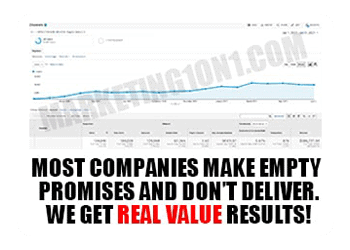Many hosted services can be obtained online for a variety of small business. The typical term used to consult all of these is cloud-computing. Cloud computing allows online businesses to use resources on the internet instead of build and maintain their own in-house infrastructures.

Cloud-computing is often a trendy term that may be heard everywhere today. In other words, it describes storing and accessing information and applications online as opposed to keeping them all stored on the hard drive of your computer.
Storing or running programs from a hard disk is called local storage. Because of this all you need is physically next to you, making use of data easy and fast, specifically the main one computer and also the others connected to it through a local network. This was what number of industries functioned for some time prior to the cloud emerged.
The “cloud” means the internet. This calls time for the times at work presentations if the internet was represented with a puffy cloud that accepts and provide information as it hovers above everything.
You might be using cloud-computing at some facet of life without realising it. You can even to online services that you use for you email, edit your documents, stream films or Tv programs, tune in to music, play games online, or store files and images. Cloud computinga makes each one of these things possible behind all this.
The 1st services to work with cloud computing are a few decades old, rising fast to ensure that a variety of organisations happen to be using the service. Including startups to big corporations along with non-profits and government departments.
Cloud-computing in a flash
Based on a report with the IDC, 50% of info technology will transition on the cloud within 5-10 years. Among the industries that rely heavily on data are the financial sector, telecommunications, technology, health care, government, advertising, retail, gaming, energy information services.
Furthermore, 82% of companies have discovered significant savings in moving to the cloud. 60% of businesses already employ cloud-based IT for operations. 82% of publication rack also creating a multi-cloud strategy.
These stats show that cloud-computing holds much promise as a rising industry in addition to a valuable source of companies to benefit from.
Cloud solutions for business
You’ll find three a variety of cloud solutions that businesses can decide on for the greatest fit – private cloud, hybrid cloud and public cloud. Each offer different features and benefits. However with every sort, the end result stays exactly the same: cloud computing can be achieved wherever you’re, whenever you want.
Private cloud
Private cloud works in industries with concerns for privacy, including medium businesses and much more established enterprises which need to meet standards for security and compliance.
One example is IoT companies, including those that trace customers through their phones. Other these comprise of health data companies, e-commerce sites that store credit card data, industries with higher ip concerns, and firms that emphasise data sovereignty.
Private cloud is managed by an in-house team of IT personnel or by the private host.
Private cloud offers complete control and adaptability, enabling businesses to handle their own dedicated resources inside a 3rd party datacentre.
Hybrid cloud
Hybrid cloud is for businesses that choose to security available from private cloud. This kind of cloud solution is great for workloads which might be highly dynamic and vulnerable to changeability. For example enterprises that may be separated into two spheres, sensitive and non-sensitive.
Hybrid cloud also works best for businesses with seasonal data spikes, big human resources, and the ones with workloads involving API compatibility and requiring solid link to a network. Hybrid cloud got its name from the proven fact that it’s managed by both in-house and external resources.
This mix of non-public and public clouds offer blending for these services as Office 365 for email with applications that companies don’t wish to be made for sale in a shared environment.
Public cloud
Public cloud is for industries which may have lots of data without having major concerns for privacy. Companies that employ this service choose a pay-as-you-go structure. This sort of cloud option is managed by third party providers.
Industries who use public cloud include those invoved with development and testing, development platform, training servers, one-off big data projects and websites with public information, product descriptions and brochures.
Public cloud is good for services, applications and storage which might be made publicly available along with people who use shared resources which are managed by the cloud provider.
For more info about Click here go to see our web page







